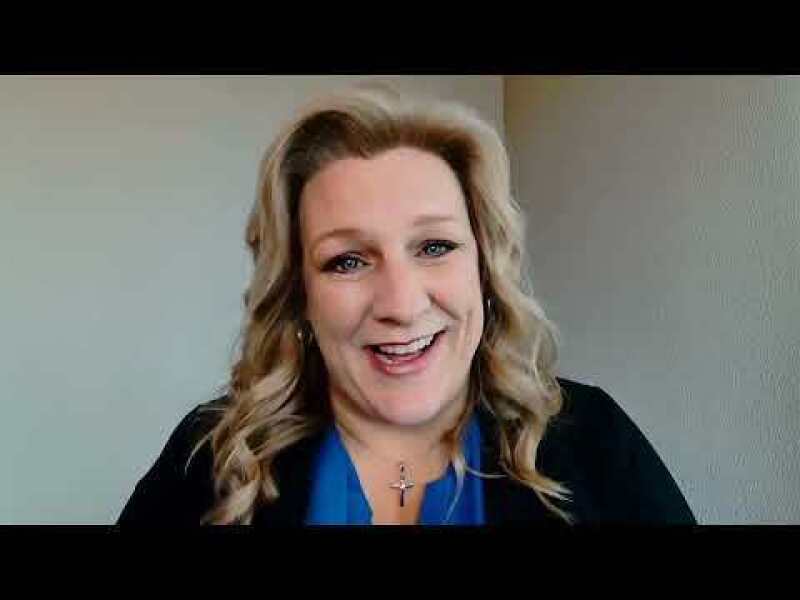The American Nurses Association provides the following definition and scope for nursing:
"Nursing integrates the art and science of caring and focuses on the protection, promotion, and optimization of health and human functioning; prevention of illness and injury; facilitation of healing; and alleviation of suffering through compassionate presence. Nursing is the diagnosis and treatment of human responses and advocacy in the care of individuals, families, groups, communities, and populations in recognition of the connection of all humanity."1
While medical equipment becomes more sophisticated and treatment plans and protocols grow more complex, at its core, nursing continues to be about the human connection between caregiver and patient. But what draws individuals to this demanding yet deeply rewarding profession? What does it mean to be a nurse? What qualities separate good nurses from great ones? And how has the meaning of nursing evolved within health care as a whole?
To answer these questions, we turned to the experienced faculty at Oklahoma City University's Kramer School of Nursing. Their decades of combined experience, from emergency rooms and intensive care units to academic halls, community health centers and research facilities, offer valuable insights into the heart of nursing practice. Their stories reveal not just the technical demands of the profession, but the profound personal impact nursing has on both caregivers and patients.
The call to care: What draws people to nursing
When Elizabeth Diener was in middle school, she spent countless hours watching nurses care for her grandmother in the hospital. "Witnessing the care she received, the way her nurses made time to talk with her and my parents made me want to be one of these caregivers," says Diener, PhD, RN, PNP, CNE, now a faculty member at Oklahoma City University's Kramer School of Nursing. Her story echoes a common thread among nursing professionals: a personal connection that sparked a lifelong calling.
For Pamela Stokes, MHCA, DNP, RN, the path to nursing also began with family. "As with many others, an experience with my family drove me to become a nurse," she explains. "I wanted to be the one treating the mind, body, and soul." This holistic approach to health care continues to draw people to the profession, which has maintained its position as America's most trusted profession for more than two decades, according to Gallup's annual poll.2
In line with OCU staff experiences, a survey of nursing students at the University of Derby found that positive experiences of nursing and direct patient care, whether personally or witnessing a family members' care, was one of the primary motivators for entering the field. Overall, the researchers found four major themes in the answers to "Why did you decide to come into nursing?" including:3
- Altruistic motivators: 60% of responses included intrinsic motivators with responses such as "I want to make a difference," "It's what I've always wanted to do" or "I want to do something worthwhile"
- Positive experiences of nursing: 21% of respondents mentioned receiving care from a nurse, providing care for a family member, or witnessing a relative's nursing experience receiving care
- Direct experience with the nursing profession: 17% of survey responses indicated having family members who worked in the nursing profession, or the individual mentioned being inspired to enter the field from experience working professionally with nurses
- Career motivation: 16% of responses indicated a desire to gain a professional qualification, progress in or change their career
Beyond medical care: What do nurses do?
Ask any nurse about their most memorable experiences, and you'll often hear stories that transcend routine medical care. Dr. Stokes shares one such powerful moment from her career: a dramatic scene involving a coding mother and her unborn child. The team had been performing CPR for over an hour, with everyone, including the doctor and anesthesiologist, in tears. Just as they were about to call the time of death, something extraordinary happened.
"The physician called out to the universe and asked for help from God, our creator, or whoever could hear him," Stokes recalls. "Within seconds, her heart began to beat. There was no physiological way she could have survived without damage to her body and brain, yet she and her baby did." Such experiences, she says, remind nurses that they "deal with more than just meds and tasks."
These profound moments, where science meets the inexplicable, shape how many nurses work and view their profession. They highlight the unique position nurses occupy in health care – present not just for the clinical procedures, but for life's most vulnerable and transformative moments. "There is a richness in nursing that drew me in," Dr. Diener reflects, "a connection to individuals at some of the most vulnerable times of their lives."
The emotional weight of such experiences can be substantial. Nurses must learn to balance professional distance with genuine empathy, technical expertise with human connection. It's this delicate balance that often defines exceptional nursing care. As Dr. Stokes explains, these moments remind health care professionals that medicine isn't just about following protocols – it's about being present for patients and their families during life's most critical moments, whether triumphant or tragic.
Such experiences also highlight the importance of team dynamics in critical care situations. The American Association of Critical-Care Nurses includes "True Collaboration" as one of the six standards for healthy work environments that benefit patients and nurses alike.4 When every second counts, the ability to work seamlessly with colleagues while maintaining emotional composure becomes crucial.
Yet it's equally important, both Dr. Stokes and Dr. Diener stress, for nurses to acknowledge and process these intense experiences, using them to grow both professionally and personally. "[Remember] to care for yourself!" Dr. Diener stresses. "Nurses are in short supply, and it's easy to take on more work than your body and mind can manage." With a projected nursing shortage lasting through 2030, maintaining this balance becomes increasingly crucial.5
The core values of nursing
"We can teach you the skills, we can help you develop in the areas of communication, but it takes individuals with a caring attitude to be a great nurse," Dr. Diener emphasizes. She points out that while some might enter the profession for its stability or salary, those who stay are driven by a deeper calling.
For Dr. Stokes, nursing has become more than a profession – it's an identity. "Nursing defines who I am," she reflects. "The first thing I tell people is: I am a nurse. Even if I am not at the bedside, I still make decisions based on the principles of nursing."
As health care continues to evolve, these insights from OCU's experienced community members illuminate the enduring essence of nursing: a profound commitment to serving others, advocating for patients, and providing skilled, compassionate care at life's most critical moments.
Dr. Diener captures this enduring commitment in her reflection on what draws people to the profession. "Women and men who describe themselves as 'wanting to help people feel better' or 'learn to deal with their illness' – if they want to use heart, hands, and communication to provide care – those are people who become great nurses," she says.
While these are defining characteristics of the profession, every day nurses utilize skills like critical thinking, collaboration, and cultural competency to support a patient's recovery.
The rewards of nursing are "never-ending," according to Dr. Stokes, who lists "changing lives, meeting people, improving well-being, molding our health care world, and having a voice in a field that deals with life or death" among the profession's benefits. But she's also candid about the challenges, including "sadness, stress, political unrest, and a feeling of having some things that are completely out of your hands...when you just want to help someone."
The future of nursing: Evolving roles and responsibilities
Ten years into her career, Dr. Diener faced a situation that would reshape her understanding of nursing's role. Working in the neonatal intensive care unit (NICU), she cared for a premature infant whose parents faced numerous challenges, including living far from the hospital. "It became evident that they could not discern the difference between poor and good care of their child," she says. "That experience added a layer to my nursing practice; one of advocacy. I was committed to making certain that all the patients I encountered received the best care possible."
Dr. Diener's NICU experience highlights a critical reality in health care: The social determinants of health (SDOH) which include factors such as socioeconomic status, employment, housing, food security, transportation, education, as well as social support and the physical environment, are largely considered responsible for health inequities. In fact, researchers have reported that as much as 80% of health outcomes are attributable to SDOH.6
The American Nurses Association's Code of Ethics positions nurses as essential advocates for patient rights and quality care, a role that extends far beyond traditional bedside duties.7 "Advocacy isn't just about speaking up when something is wrong," Dr. Diener explains. "It's about ensuring equity in health care delivery, educating patients about their rights, and sometimes being the voice for those who cannot speak for themselves."
For vulnerable populations– whether due to education, socioeconomic status, or geographic location–this gap can significantly impact health outcomes. Nurses, who spend the most time with patients, are uniquely positioned to bridge this divide through direct care and by advocating for improved social policies addressing: early childhood care and youth development; child poverty; inclusive economic investment strategies; programs to enhance job readiness and promote fair, equitable, and safe work opportunities and conditions. Recent studies have shown that policy actions can reduce health care disparities and improve patient outcomes.6
The role of nurse advocate becomes even more vital as health care systems grow more complex. From navigating insurance requirements to coordinating care across multiple specialists, nurses often serve as guides through what can feel like an overwhelming medical maze. Care management, care coordination, and transitional care fall under the purview of nurses as members of a health care team and are responsible for decreasing fragmentation, increasing communication, and improving care quality and safety for patients.8
"We're not just advocating for better medical care," Dr. Diener notes, "we're advocating for better health care experiences, for clearer communication, and for more equitable access to resources."
So, what does it mean to be a nurse?
For prospective nurses, perhaps the most valuable insight comes from understanding how seasoned professionals view their role. As Diener explains, "Nursing means a heart-to-heart connection with those I care for, making a difference in their lives."
Nursing is so much more than health histories, vital signs and treatment plans. As Oklahoma City University continues to shape the next generation of nurses, these community insights provide a window into a profession that continues to evolve while maintaining its core mission of compassionate, skilled patient care.
What does becoming a nurse mean to you? If you're interested in investing further into your nursing education to build up your skills and improve patient care and practice nursing at a higher level, schedule a call with an admissions outreach advisor. The Kramer School of Nursing features an entirely online Registered Nurse to Bachelor of Science in Nursing (RN-BSN) program as well as an online Master of Science in Nursing led by faculty with expansive experience across the spectrum of health settings. An admissions outreach advisor can help you navigate the admissions requirements, review the curriculum, and discuss your future both within and beyond nursing school.
- Retrieved on December 9, 2024, from nursingworld.org/practice-policy/workforce/what-is-nursing/
- Retrieved on December 9, 2024, from news.gallup.com/poll/608903/ethics-ratings-nearly-professions-down.aspx
- Retrieved on December 9, 2024, from nursingtimes.net/education-and-training/why-do-student-nurses-want-to-be-nurses-24-01-2014/
- Retrieved on December 9, 2024, from aacn.org/nursing-excellence/healthy-work-environments/true-collaboration
- Retrieved on December 9, 2024, from aacnnursing.org/news-data/fact-sheets/nursing-shortage
- Retrieved on December 9, 2024, from ojin.nursingworld.org/table-of-contents/volume-23-2018/number-3-september-2018/adopting-health-in-all-policies-approach/
- Retrieved on December 9, 2024, from nursingworld.org/practice-policy/nursing-excellence/ethics/code-of-ethics-for-nurses/
- Retrieved on December 9, 2024, from ncbi.nlm.nih.gov/books/NBK573910/





